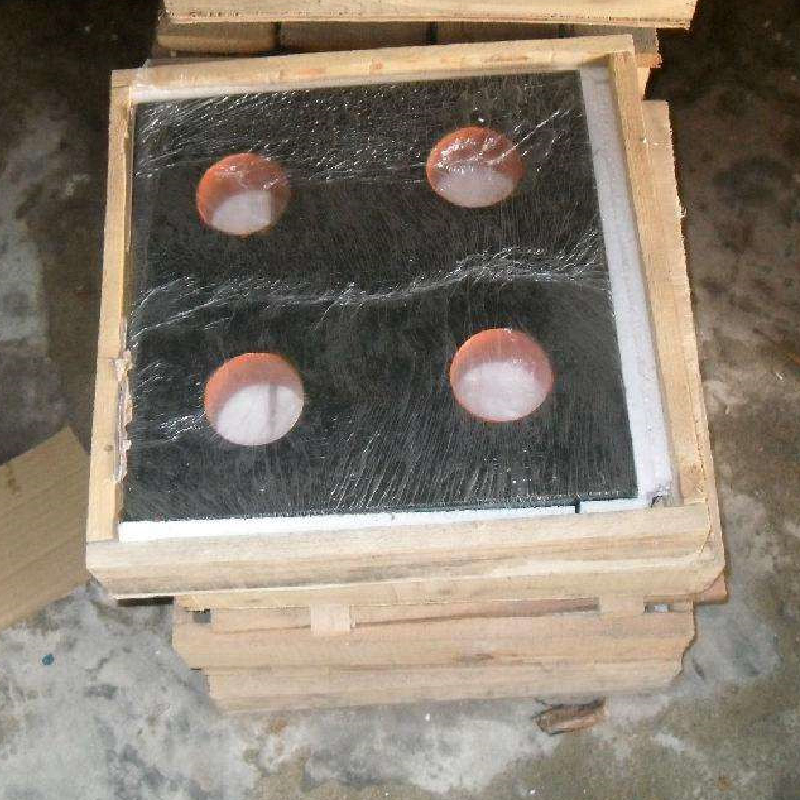Дек . 29, 2024 09:52 Back to list
Hydraulic Pump Maintenance and the Importance of Check Valves in Fluid Systems
Understanding Hydraulic Pump Check Valves Function and Importance
Hydraulic systems are integral to a wide variety of industrial and engineering applications. At the heart of these systems is the hydraulic pump, which generates the flow of hydraulic fluid necessary for transferring energy. However, to maintain efficiency and safety within these systems, the use of check valves becomes crucial. This article delves into the function, types, advantages, and installation considerations of hydraulic pump check valves, illuminating their importance in hydraulic applications.
What is a Hydraulic Pump Check Valve?
A check valve is a type of one-way valve that allows fluid to flow in a single direction while preventing backflow. In the context of hydraulic systems, a hydraulic pump check valve is strategically placed to ensure that hydraulic fluid only moves from the pump towards the actuator and not in reverse. This one-way function is vital to maintain system pressure and enhance operational efficiency.
How Does a Hydraulic Pump Check Valve Work?
The operation of a check valve hinges on pressure differentials. When the hydraulic fluid is pumped, the pressure generated forces the valve to open, allowing fluid to flow through. If there’s any attempt for fluid to flow backward—either due to pressure fluctuations or gravitational forces—the valve automatically closes, thus preventing fluid from returning to the pump. This action helps protect the pump from damage, reduces the risk of cavitation, and ensures that the entire hydraulic circuit operates smoothly.
Types of Hydraulic Pump Check Valves
1. Spring-Loaded Check Valves These valves employ a spring mechanism to maintain closure until a sufficient pressure differential occurs. They are commonly used in various hydraulic applications due to their ability to handle different pressure settings.
2. Ball Check Valves Utilizing a ball as the closing mechanism, these valves are simple and effective for preventing backflow. They are often employed in low to moderate pressure systems.
3. Piston Check Valves Piston check valves use a piston mechanism to allow flow in one direction. They are beneficial in systems requiring precise control over the flow rate and are highly reliable for high-pressure applications.
4. Silent Check Valves Designed to minimize noise during operation, these check valves are often used in residential and commercial applications, showcasing that they are not just for heavy industrial use.
Advantages of Hydraulic Pump Check Valves
hydraulic pump check valve

The incorporation of check valves in hydraulic systems offers several advantages
- Prevents Backflow By stopping the reverse flow of hydraulic fluid, check valves protect pumps and other components from potential damage, thus prolonging the life of the system.
- Enhances Efficiency Maintaining consistent flow in one direction means that the hydraulic system can operate more efficiently, optimizing performance.
- Reduces Cavitation Risk Cavitation can occur when there is a low-pressure area that allows vapor bubbles to form. Check valves help prevent situations conducive to cavitation, protecting the pump from significant operational hazards.
- Simplified Maintenance Check valves are generally low-maintenance components, especially when compared to other hydraulic components that may require routine inspection and replacement.
Installation Considerations
When installing hydraulic pump check valves, several considerations must be taken into account to ensure optimal performance
- Orientation Check valves must be installed in the correct orientation to function properly. Most valves come with indicators showing the direction of flow.
- Pressure Ratings It is essential to choose a check valve that can withstand the pressures of the specific hydraulic system. Using valves rated below the operating pressure can lead to failure.
- Fluid Compatibility The material of the check valve should be compatible with the hydraulic fluid used in the system to prevent degradation and leaks.
Conclusion
Hydraulic pump check valves serve an indispensable role in the reliable function of hydraulic systems. By ensuring one-way flow and preventing backflow, these valves enhance operational efficiency, protect vital components, and mitigate risk factors associated with hydraulic fluid dynamics. Understanding the various types, functions, and installation considerations surrounding check valves is essential for engineers and technicians aiming to optimize hydraulic system performance and longevity. As industries continue to evolve, the reliability of hydraulic components like check valves will remain a cornerstone of effective engineering solutions.
-
Y Type Strainer Maintains System Efficiency Long TermNewsJul.15,2025
-
Valve Selection Guide for Industrial ApplicationsNewsJul.15,2025
-
Steel Fab Table Provides Durable Work Surface for WeldingNewsJul.15,2025
-
Pad Iron Provides Stable Support for Heavy MachineryNewsJul.15,2025
-
One Inch Check Valve Fits Standard Plumbing SystemsNewsJul.15,2025
-
Measuring Micrometer Ensures Precise Dimensional AccuracyNewsJul.15,2025
Related PRODUCTS









